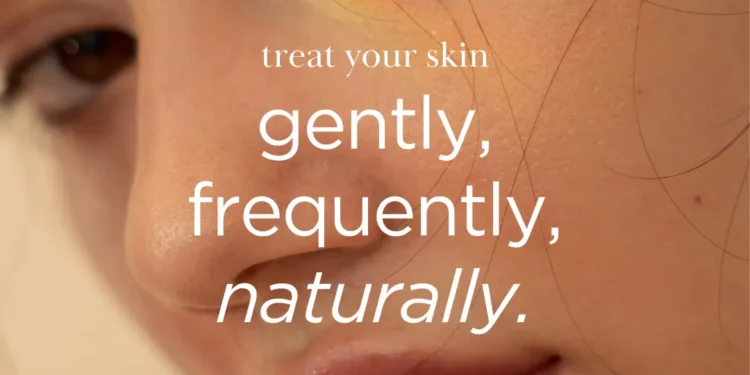Accutane (isotretinoin 40 mg) is a powerful medication used to treat severe acne. It’s often a game-changer for those struggling with persistent breakouts. But a lingering question for many is: can Accutane erase the marks left behind by past battles with acne – the scars?
In this blog, we’ll delve into the truth about Accutane and acne scars, exploring its impact and alternative solutions for achieving a smoother complexion.
Accutane’s Role in Scar Prevention
While Accutane doesn’t directly remove existing scars, its strength lies in preventing new ones. Here’s how it works:
- Reduced Inflammation: Acne breakouts cause inflammation, which can damage skin tissue and lead to scarring. Accutane tackles this root cause by shrinking oil glands and calming inflammation. This significantly reduces the risk of severe breakouts that could potentially scar.
- Faster Healing: Accutane may also promote faster skin cell turnover, potentially aiding in the healing of minor, early-stage scars. accutane for acne is available at dosepharmacy
Accutane’s Limitations on Existing Scars
While preventive, Accutane isn’t a magic eraser for established scars. Deeper, more prominent scars require a different approach. However, some people experience a slight improvement in the appearance of shallow scars due to Accutane’s potential exfoliating effect.
Setting Realistic Expectations
If you’re considering Accutane for acne treatment, it’s crucial to have realistic expectations about scars. Discuss your concerns with a dermatologist. They can assess your specific situation and advise on the best course of action for managing both active acne and scars.
Alternative Solutions for Existing Scars
Fortunately, there are effective options for addressing existing acne scars. Here are some popular methods:
- Microneedling: This minimally invasive treatment uses tiny needles to create controlled punctures in the skin. This triggers the body’s natural healing response, encouraging collagen production to fill in and smooth out scars.
- Laser Treatments: Different lasers target various scar types. Fractional lasers, for example, can improve the appearance of indented scars. A dermatologist can recommend the most suitable laser for your specific needs.
- Chemical Peels: Chemical peels work by removing the outer layers of skin, promoting regeneration and potentially minimizing the visibility of shallow scars.
- Dermal Fillers: Fillers can be injected to plump up indented scars, creating a more even skin surface.
The Importance of Consulting a Dermatologist
The best course of action for treating acne scars depends on the type, severity, and your individual goals. A board-certified dermatologist can evaluate your skin and recommend the most effective treatment plan, which may even combine different methods for optimal results.
Remember: It’s important to wait at least 6-12 months after completing your Accutane course before undergoing any scar treatment procedures. This allows your skin time to fully recover.
Conclusion
While Accutane can’t directly remove existing acne scars, its role in preventing future scarring is significant. By minimizing inflammation and promoting healing, it can pave the way for clearer, smoother skin. If you have acne scars that bother you, consult a dermatologist to explore the best treatment options for achieving your desired results.
Factors Affecting Scarring:
- Severity of Acne: Deeper, more inflamed acne lesions are more likely to leave scars.
- Picking at Pimples: This habit can worsen inflammation and increase the risk of scarring.
- Skin Type: Oilier skin types are more prone to developing acne and potentially scars.
- Genetics: Some people are simply more susceptible to scarring than others.
Lifestyle Tips to Minimize Scarring:
- Sun Protection: UV rays can worsen scars. Always wear sunscreen with SPF 30 or higher daily.
- Moisturize Regularly: Keeping your skin hydrated promotes healing and can improve the overall appearance of scars.
- Healthy Diet: A balanced diet rich in fruits, vegetables, and whole grains can support skin health and healing.
- Stress Management: Chronic stress can exacerbate acne and potentially worsen scarring. Explore relaxation techniques like yoga or meditation.
Alternative Treatments to Consider:
- Silicone Gel Sheets: These sheets can be applied directly to scars to help flatten and soften them.
- Corticosteroid Injections: Injections can be used to reduce inflammation in raised scars.
- Surgery: In severe cases, surgical scar revision may be an option. However, this is typically a last resort.
The Importance of Maintaining Clear Skin:
Once you’ve achieved clear skin with Accutane, maintaining a good skincare routine is essential. This can help prevent future breakouts and minimize the risk of new scars forming.
Finding Support:
Dealing with acne and scars can be emotionally challenging. Consider joining online support groups or talking to a therapist to connect with others who understand your struggles.
Remember:
Patience is key. Treating acne scars takes time and dedication. Don’t get discouraged if you don’t see results overnight. Be consistent with your treatment plan and celebrate even small improvements.









